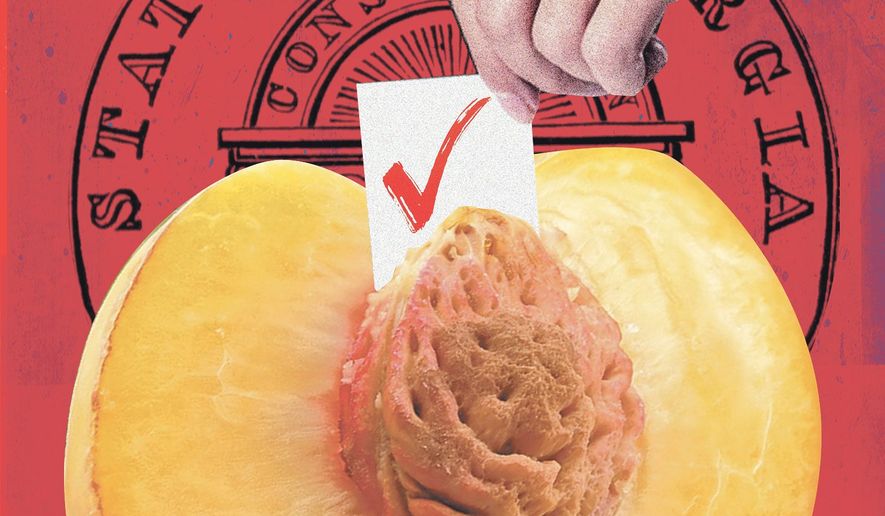OPINION:
Back in the late 1700s, friction erupted between two of our most prominent founding fathers — Alexander Hamilton and Thomas Jefferson. Each had completely different visions for our Constitution and how the nation would be governed.
Hamilton wanted a powerful federal government, and Jefferson argued for power to flow through states to local governments. What resulted was the 10th Amendment to the Constitution that says, “The Powers not delegated to the United States by the Constitution, nor prohibited by it to the States, are reserved to the States, respectively, or to the people.”
This amendment — along with a specific provision of the Constitution entrusting elections to states — is the basis for all 50 states controlling and administering their own elections.
But now we have the Biden administration unhappy with Georgia’s recent election reform law, making it easier for voters to cast a vote in our state. The administration has filed a federal lawsuit against our new law, and last week it threatened to litigate against any state that takes steps to change its election laws since the 2020 election.
Besides this being a political stunt, there is a simple reading of this attack on Georgia and a host of other states like Texas that have undertaken election reform.
If you read the United States Constitution and recent Supreme Court rulings, it is primarily the state’s business how we conduct our elections. This is especially true since Georgia is no longer under the direct supervision of federal authorities due to past civil rights violations when Democrats controlled the state government.
Minorities in our state have and continue to turn out to vote in Georgia in record numbers in each of the last few elections.
As the chairman of the 2021 Georgia State House election reform committee, I can tell you that the new rules are nothing like the misrepresentations perpetuated by Stacey Abrams and her various groups. For example, our election law does not prohibit anyone from drinking water in the line to vote. Federal and state law already prohibits giving someone anything of value in exchange for voting. Our legislation specifically allows water stations at polling stations.
Another new process in the bill now requires more verification of absentee ballots driver’s license ID information, a process the majority of voters of all races support. It prohibits outside private organizations from funding (and thus attempting to influence) local election boards.
Our election reform also expands early voting additional days to a requirement of at least 17 voting days and a possible 19 before an election — giving everyone time to cast their ballot during the work week or on the weekend.
The election changes also allow early processing of absentee ballots to prevent long delays and issues on election night or immediately after an election. This is a practice we have seen result in great success in Florida.
A host of other measures were adopted in the bill, including moving up runoffs for federal elections from nine weeks to four weeks by allowing overseas voters the opportunity to vote priority choices in the first race so there is not a delay in a runoff for their ballots.
When the founders worked to craft the United States Constitution, there were concerns about whether the federal government would become too large and seize and too much authority from states. Little did Jefferson and Hamilton know that battle would still be argued almost 250 years later. Some federal authorities now want to strip states like Georgia the ability to make changes in their election laws from everything from early voting days to whether you have to show a photo ID to vote.
Among the most important rights is the right to express your voice at the ballot box in a free and fair election. And how each state — including Georgia — chooses to do that should be up to the people of that state and the representatives they elect.
The argument of whether the government should rule from the bottom up or from the top down seems to be one that will rage perpetually. Thankfully, we have the courts to sort this out, the branch of government created to uphold the Constitution as written. And so far, all the rulings have been in favor of Georgia’s new election law.
• Barry Fleming is a Republican state representative from Harlem, Ga. He is chairman of Georgia’s State House Special Committee on Election Integrity.




Please read our comment policy before commenting.